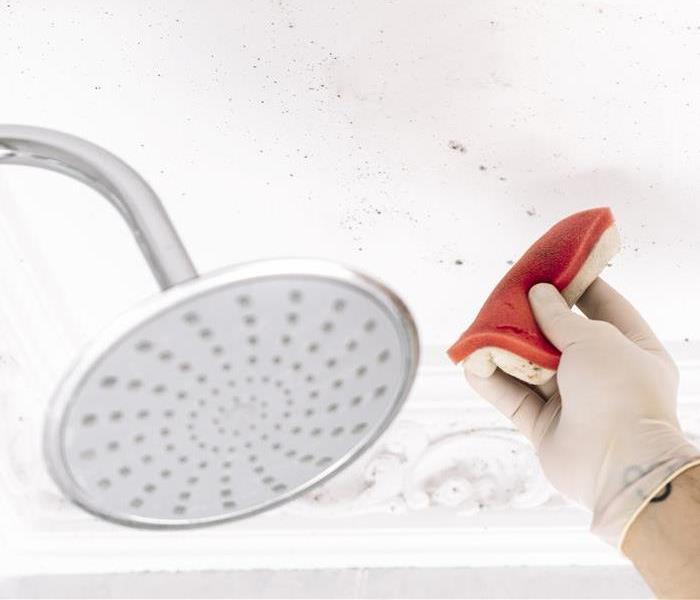Can You Live in a Home with Mold in the Walls?
10/10/2023 (Permalink)
Living with mold in your home can be dangerous to your health. The sooner you get rid of it, the better. However, sometimes mold is hidden behind walls or in other places where it's difficult to spot. If you're not sure whether or not you have mold in your home, it's important to know the signs to look for.
Signs of Mold
If you notice a musty smell in your home, it's a good indication of the presence of mold. You might also see visible mold growth. It can appear as black, green, or white patches on walls, ceilings, or other surfaces.
If you presume mold, it's essential to have your home tested by a professional. They can take samples of the air or surface areas to be certain of its presence and help you determine the best way to get rid of it.
Getting Rid of Mold
Once you've confirmed that you have mold in your home, it's important to take action to get rid of it. Mold removal can be a challenging and costly process. However, it's important to do it correctly to ensure that it doesn't come back.
If you have a small amount of mold, you might be able to remove it yourself with household cleaners and a little elbow grease. However, if you have a large amount of mold, it's best to hire a professional. They have the experience and equipment necessary to safely and effectively remove mold.
Preventing Mold
There are a few things you can do to reduce the risk of mold growth in your home:
Control Humidity Levels
Mold thrives in moist environments. To prevent growth, keep the humidity level in your home below 60%. You can do this by:
- Using a dehumidifier
- Increasing ventilation
- Fixing any leaks
Reduce Indoor Temperature Fluctuations
Temperature fluctuations can also lead to mold growth. To prevent mold, try to keep indoor temperatures as consistent as possible.
Use an air conditioner or a fan when it's hot outside, and open up windows when it's cooler to help regulate the temperature inside your home.
Monitor Condensation
Condensation can also lead to mold growth. Therefore, it is important to monitor areas of your home that are prone to condensation, such as windows, walls, and ceilings.
If you see condensation, ventilate the area, or use a dehumidifier to help reduce the moisture in the air.
Clean Up Spills and Leaks Immediately
Spills and leaks are other common sources of mold. To prevent mold, clean up any spills or leaks as soon as possible. Mop up wet floors, wipe down wet surfaces and fix any leaks to help keep your home mold-free.
Use Mold-Resistant Products
There are a variety of mold-resistant products available on the market, such as:
- Paints
- Caulks and sealants
- Bathroom and kitchen tiles
- Mold-resistant drywall
When using mold-resistant products, be sure to follow the manufacturer's instructions to ensure they are used properly.
Treating Mold
If mold is already growing in your home, you'll need to treat it to prevent the problem from getting worse.
- Clean up any moldy surfaces with soap and water
- Use a commercial mold removal product
- Repair or replace any moldy materials
When treating mold, it's important to take precautions to avoid it spreading to other areas of your home. Be sure to:
- Wear adequate protection
- Open windows and doors to provide ventilation
- Cover any moldy surfaces with plastic sheeting before cleaning
- Clean up moldy materials outside whenever possible
Taking these precautions can help prevent the spread of mold and make the job easier.
When to Call a Professional
There are some cases where it's best to call a professional to handle the problem. If you have a lot of mold, or it's growing in a difficult-to-reach area, or if you have health problems that make you susceptible to mold, it's best to call a professional.
A professional will have the experience and equipment necessary to remove mold safely and effectively. They will also be able to help you identify and fix the source of the moisture to prevent the mold from coming back.
If you think you might have a mold problem, call SERVPRO of East Baton Rouge and Ascension at (225) 753-3434 to schedule a free assessment. We're here to help with your mold remediation needs.





 24/7 Emergency Service
24/7 Emergency Service
